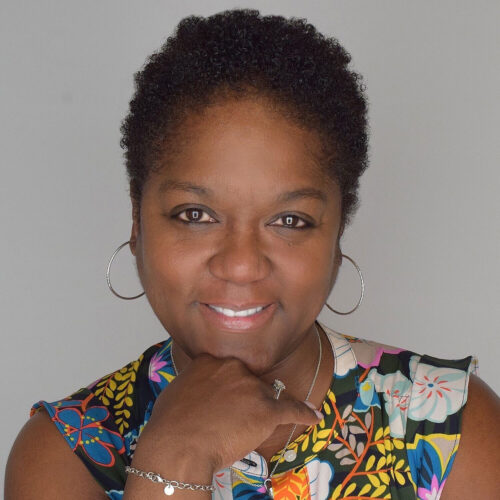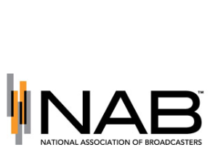
Earlier this month, the National Association of Broadcasters, in partnership with the NAB Leadership Foundation, launched the “You Belong Here” campaign to rejuvenate the radio industry by attracting diverse and dynamic young talent.
The initiative provides stations across the country with a digital toolkit to educate the next generation about the opportunities in broadcasting – on-mic and off.
With recruitment remaining a key pain point for radio, Radio Ink sat down with Michelle Duke, President of the NAB Leadership Foundation and NAB Chief Diversity Officer, about the birth of the “You Belong Here” initiative and what it takes for stations to win over young talent.
Radio Ink: What led the NAB to the creation of the “You Belong Here” initiative?
Michelle Duke: Well for years, the Foundation has had a number of recruitment initiatives through our media sales academy, our technology apprenticeship program, and other collegiate initiatives. But it’s also something that we’ve been keenly aware that members are grappling with at NAB proper. It’s kind of reached, if you will, a pinnacle.
When Curtis [LeGeyt] first got into his position as CEO, he was doing rounds, talking to lots of broadcasters, visiting with state associations. He heard repeatedly that the greatest need right now is assistance with recruitment. So he challenged the NAB proper and foundation teams to work together to develop an initiative that would assist broadcasters with their recruitment needs.
So while the Foundation is on the ground, if you will, doing the work like helping to place internships or training individuals to move into these types of roles, we have long known that there was a need for some sort of initiative that would educate individuals about the careers in this business.
Most people think about what’s on air, what they hear, what they see. And so we worked diligently as a collective, led by NAB, to develop a campaign that would speak to educating individuals. So in the end, we’d get more individuals in our programs and broadcasters would get more awareness of the opportunities that are in our industry.
Radio Ink: Getting newcomers into all aspects of broadcasting, especially sales and engineering, is very important. But once they’re there, how does the “You Belong Here” campaign ensure radio is not only attracting talent, but it’s supporting growth and retention?
Michelle Duke: So the campaign itself is designed to attract people to the business and be a resource for broadcasters to assist them as they do that. There are suggestions if you go to the landing page of the campaign on how broadcasters can get more involved in their community. We’re not removing the onus, if you will, from broadcasters. There’s still some degree of responsibility to get out there, but we are creating a tool that can assist them in the process.
Radio Ink: You mentioned working with different colleges and schools. How has that factored into this campaign?
Michelle Duke: I’ll tell you a little bit of history around how we developed the campaign. An integral part of where the Foundation got involved was to organize focus groups. We selected college students from some of our various initiatives and other resources where we were able to get their advice on what they consider when they think about careers across any industry. Of course, we also got their specific thoughts on local radio and television.
We used that information to guide us in terms of what we eventually put together in terms of suggestions and resources for broadcasters when they’re going out to recruit talent.
Again, it goes back to broadcasters needing to get involved. When I’m out speaking at state associations across the country about recruitment, my entire presentation is around how we can provide you with the resources, but it comes down to you going or your general sales manager going and connecting with the business school at the college in your town, hosting tours for college students, participating in the career fairs that are held on campus, and educating students about these opportunities.
What we found – and I’m speaking now with my Foundation hat on – when we’ve done that, is that students ask all the time when we’re at an engineering conference or if we’re at a business conference, they’re like, “Why are broadcasters here? We don’t want to work in your industry.” They don’t understand there’s even an opportunity.
Radio Ink: Dare I be brave enough to ask what the perceptions about radio were in the focus groups?
Michelle Duke: I will say that we were pleasantly surprised that they do identify both radio and television with emergency situations. And they were able to identify the weather and traffic, you know. So these essential services that I think we provide as an industry, they certainly recognized.
Some associated radio with what their parents like, or they talked a lot about family and home. And those were really, really positive things. We didn’t really get a lot of eye-rolling, but we did get a lot of, “I didn’t know that.”
They certainly understand radio. They didn’t necessarily understand the difference between over-the-air and satellite. So, again, the education needs to be put out there first, and then we take it from there.
Radio Ink: Education is important, but that can’t be the only piece to the puzzle, right? Today, there are more alternate avenues for those who would become potential broadcasters than ever before. How does radio pitch itself as a real competitor?
Michelle Duke: They need to be aware that broadcast radio is still a very viable industry and an evolving industry. They all ask about the technology involved. They don’t want to be seen as going into something that is behind the times. They all asked about being respected at their job and if their opinion would matter.
They don’t want to go into an industry that they feel is so set in its ways that they don’t value the fresh perspective of someone who may be younger and less experienced.
Frankly, it takes education on both sides. We haven’t gotten to the side where we’re educating the broadcasters like, “Hey, once we get these people in, here’s how to help them grow. Here’s how to benefit from their fresh perspective. Here’s how to pay them, frankly, so that they stay,” you know? We haven’t even gotten to that piece of it.
If we asked the industry to identify their biggest recruiting pain points for consistently attracting talent, most would raise their hand and say sales and engineering. We found in a survey that most students in these fields choose their first entry-level job based on the internship that they complete. And these fields were everything from pharmaceuticals to farm equipment.
Then we juxtaposed that and we asked the same questions in reverse to broadcasters. We’d ask the broadcasters, do you offer internships? And they’d be like, “No, not in engineering.” Okay. Then we’d say, do you speak at schools? “No, no, we, you know, we don’t do that.”
We know there’s a need; that’s what the students are requesting. And yet, broadcasters, for one reason or another, aren’t fulfilling that need. And if stations aren’t prepared for new workers when they come into your stations, then we’ll be right back in the same situation.
Radio Ink: To close, let’s drill down to a one-on-one level. You have a wealth of experience with mentorship through the NABLF. What advice on mentorship can you give to young salespeople seeking mentors?
Michelle Duke: For young salespeople seeking mentors, I’d say get involved. I always say read the trades, number one, and look for individuals that you can have as direct mentors. You can have individuals whose careers you follow because they’re just outstanding individuals doing great stuff in the business. Just stay aligned and keep track of what’s going on in their career.
As often as possible, get to conferences. You may not get to the national conferences all the time. But when you can’t do that, whenever, your state association’s conference is in your backyard, you should engage there because you meet interesting individuals.
In large part, what I’ve learned in this industry is people like giving back. We do it as an industry.
This is one thing that we recognize in the Foundation through our Service to America Awards, but we also do it as individuals working in the industry. People like giving back and bringing folks along. Media is one of these industries that people are incredibly passionate about. You know, in some ways we have to be because the pay can be interesting until you get to a certain point. So you’re following your passion, you know what I mean?
Because of that, they want to see the industry survive. So when people come up and want to be mentored, I think that young folks and entry-level salespeople in our industry will find that some of the icons in our business and a lot of the leaders in our business are very receptive.
Don’t be afraid to meet people, follow careers, and put yourself out there at various conferences when it’s convenient for you to do so. It’s important.









